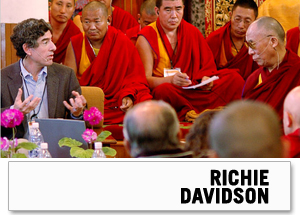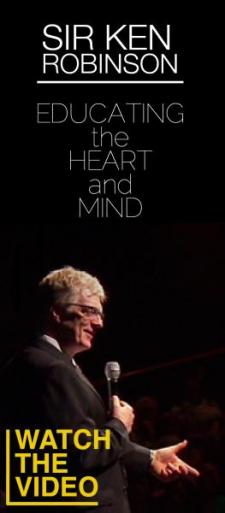Video

Transform Your Mind, Change Your Brain. (September 2009). Google Tech Talk.
In this talk, Dr. Davidson explores recent scientific research on the neuroscience of positive human qualities and how they can be cultivated through contemplative practice. He talks about new research that shows that meditation-based interventions delivered online can produce behavioral and neural changes. Collectively, this body of research indicates that we can cultivate adaptive neural changes and strengthen positive human qualities through systematic mental practice.
Other Video
Interview with Dr. Davidson. (August 2010). Romifilms. Vimeo.
Romi Chiorean interviews Dr. Davidson about science’s use of “operative language” when defining terms like compassion and anxiety vs. contemplative practitioners’ use of “descriptive language” for the same constructs. Davidson talks about ways in which he and others are seeking to bridge this language gap. He feels that “there’s a tremendous amount of benefit from a dialogue of this sort,” and says that “contemplative scholars are keeping the scientists honest about how they are using these measures and constructs.”
Introducing Richard Davidson. (June 2010). Wadi Rum Productions. Vimeo.
Director Roko Belic of the documentary film, HAPPY, introduces Dr. Richard Davidson, a neuro-science guru and happiness expert who is in the film. Davidson talks about the discovery of which parts of the brain are active when we are happy, which has enabled scientists to quantify happiness using a biological indicator, rather than relying on self-reports of happiness. (See a trailer of the documentary film HAPPY here.)
Here on Earth—Off The Mic. (October 2009). YouTube’s Here On Earth Show.
In this Here on Earth video, Dr. Davidson talks "off the mic" about his upcoming conference with the Dalai Lama.
Keynote Address. (March 2009).
Excerpts from Dr. Davidson's keynote address on contemplative neuroscience at the Center for Mindfulness 7th Annual International Conference in Worcester, MA.
Be Happy Like a Monk. Part 1. See also Part 2. (2007)
Professor Richard Davidson of the University of Wisconsin discusses the results of studies with Buddhist Monks and Meditation. Using EEG, he has mapped the areas of the brain affected by meditation and also researched correlations between happiness and life events.





